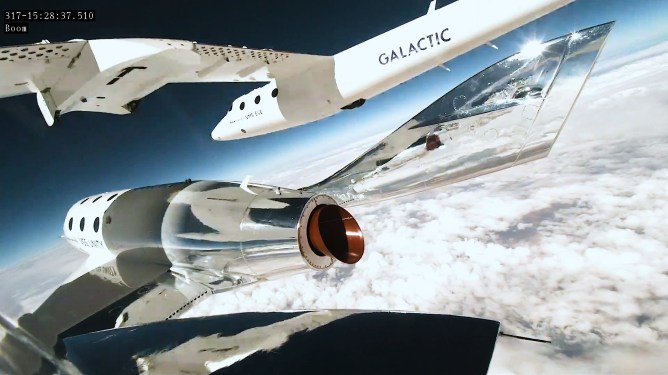Virgin Galactic CEO Michael Colglazier’s Memo: Uncertainty in Capital Markets and Geopolitical Unrest
In a memo to staff sent Tuesday, Virgin Galactic CEO Michael Colglazier announced that the company is cutting costs and reducing its workforce by 18% as it looks to scale production of its next-gen line of suborbital spaceplanes. The decision comes on the heels of uncertainty in capital markets and geopolitical unrest, which have made "near-term access to capital much less favorable" for companies like Virgin Galactic.
Why Is This a Challenge for Virgin Galactic?
Virgin Galactic is simultaneously focusing on scaling commercial operations of its initial vehicles, the VSS Unity suborbital vehicle and the Eve aircraft, while also working to create a fleet of next-gen ships called Delta. The company sees the Delta ships as "powerful economic engines" that will drive growth and profitability.
However, bringing these new ships into service requires an extension of Virgin Galactic’s financial position and reducing its reliance on unpredictable capital markets. To achieve this, the company needs to redirect resources toward the Delta program while streamlining and reducing work outside of it.
Layoffs: The Cost-Cutting Measure
The cost-cutting measure will involve laying off 185 employees, which is approximately 18% of Virgin Galactic’s workforce. This move is expected to result in an annual cost savings of around $25 million. Colglazier emphasized that the company will be contacting each employee to confirm their employment status and provide support during this transition.
Why Is It Necessary for Virgin Galactic to Cut Costs?
The company has previously stated its ambition to bring Delta ships into commercial service by 2026. However, achieving profitability will require significant investment in research and development, production, and maintenance costs. The standardized production model for the Delta ships is designed to make them cheaper to produce and maintain, with a goal of flying up to 400 times per year.
The Impact on VSS Unity Flights
To focus resources on the Delta program, Virgin Galactic will be reducing flights of its VSS Unity spaceplane. The company plans to fly the VSS Unity only once per quarter before pausing in mid-2024 to focus on assembling the new Delta ships.
Virgin Galactic’s Financials
The decision comes as Virgin Galactic reported a net loss of $104.6 million at the end of the third quarter and $1.7 million in revenues. The company ended the quarter with around $1.1 billion of cash and securities on hand. The layoffs and cost-cutting measures are aimed at creating a stronger financial position to support the growth of its next-gen spaceplanes.
The Future of Virgin Galactic
As Virgin Galactic continues to push forward with its ambitious plans, it’s essential for the company to balance the need for investment in new technologies with the need to control costs. The decision to cut staff and reduce costs is a significant step toward achieving profitability and realizing the potential of its next-gen spaceplanes.
The Role of Next-Gen Spaceplanes in Virgin Galactic’s Future
The Delta ships are seen as crucial to Virgin Galactic’s long-term success, offering a scalable and efficient way to provide suborbital flights. By focusing resources on these new vehicles, Virgin Galactic can drive growth and profitability while reducing its reliance on unpredictable capital markets.
Conclusion
Virgin Galactic’s decision to cut costs and reduce staff by 18% is a strategic move aimed at creating a stronger financial position for the company. As it continues to push forward with its ambitious plans, it’s essential for the company to balance investment in new technologies with the need to control costs.
The Road Ahead
As Virgin Galactic focuses on scaling production of its next-gen spaceplanes, it will be crucial to monitor the company’s financials and operational performance. With a strong financial position and a scalable business model, Virgin Galactic is well-positioned for long-term success in the rapidly evolving space industry.
About the Author
Aria Alamalhodaei is a reporter covering the space and defense industries at TechCrunch. She has previously covered public utilities and the power grid for California Energy Markets and has contributed to publications such as MIT’s Undark Magazine, The Verge, and Wired.











